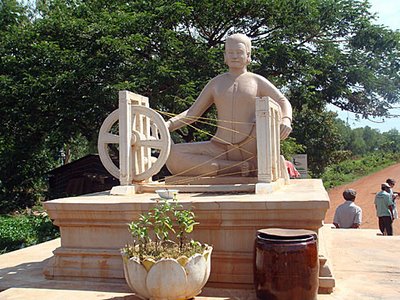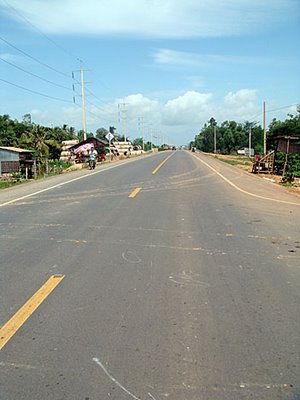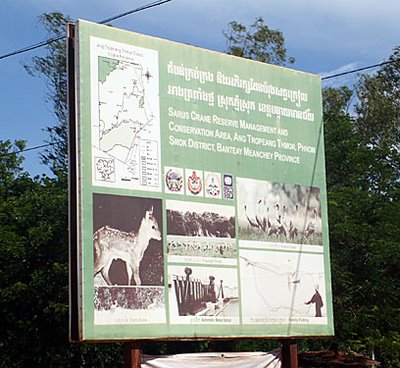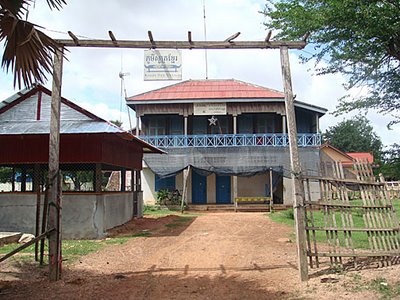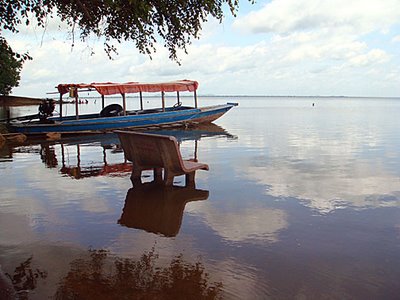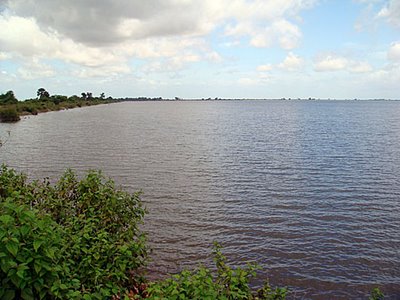Off to see the birds
A last minute decision to return to Phnom Penh from Siem Reap via Battambang gave my work colleague Nick and myself an opportunity to take a diversion to see the bird sanctuary at Ang Trapeang Thmor. I must quickly mention National Highway No 6 by the way, which is now fully renovated and in fantastic condition. It's smooth tarmac all the way from Siem Reap to Sisophon and this will cut down travelling time immeasurably. Try it now and if you put your foot down it can take 1 hr 45 minutes to get to Battambang I'm told. Anyway, we took a right turn off Route 6 after 70-odd kms - look out for the woman and her silk-spinning wheel - and bumped along a dirt road for another 20 kms before arriving at Phnom Srok. We'd already seen a field full of very large long-necked storks en route, though the Khmer Silk Villages project we paused at in the village, seemingly has now come to an end and their silk-weaving center was closed. However, that hasn't stopped silk-weaving in the villages, we saw many looms under wooden houses - the area is famous for its golden silk. About 8kms out of the village we found the laterite bridge of Spean Dach and then soon after arrived at Ang Trapeang Thmor. Its effectively a massive reservoir created by forced labour during the Khmer Rouge period. And this water resource and the surrounding wetlands attracts hundreds of different types of birds, many of them endangered especially the red-headed Sarus Crane, who sadly were residing in Vietnam during our visit. Nevertheless, we got to see a variety of birds including large pelicans floating on the water but as the bird reserve office was closed, we had to rely on a local farmer for our information. The southeast corner of the lake also acts as a resort for locals where boats, rubber-rings and food are available. We took a different route through numerous villages back to Route 6, rejoining it at Preah Net Preah and stopped in Sisophon for some lunch. If you are planning on seeing the birds at Ang Trapeang Thmor, take binoculars and a bird guide with you to ensure you make the most of your time there. The improvement in Route 6 now makes this protected area much more accessible for a day visit.
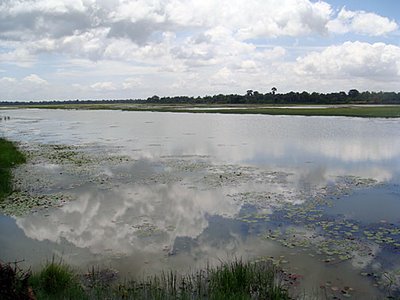 A view of the wetlands, behind the lake, allowing farmers to grow at least two harvests of rice each year
A view of the wetlands, behind the lake, allowing farmers to grow at least two harvests of rice each year
 A view of the wetlands, behind the lake, allowing farmers to grow at least two harvests of rice each year
A view of the wetlands, behind the lake, allowing farmers to grow at least two harvests of rice each yearLabels: Ang Trapeang Thmor, Sarus Crane
